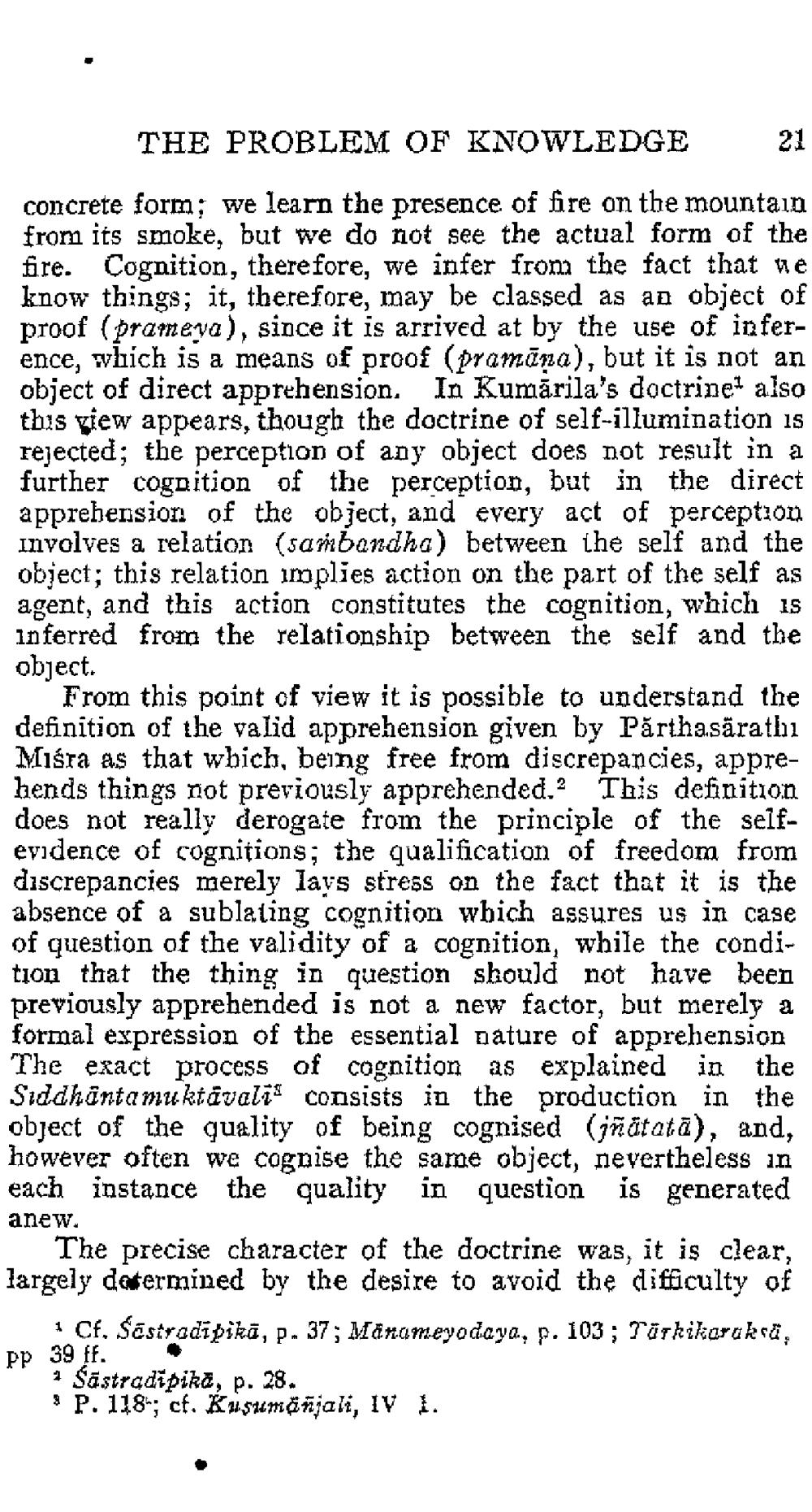________________
THE PROBLEM OF KNOWLEDGE
concrete form; we learn the presence of fire on the mountain from its smoke, but we do not see the actual form of the fire. Cognition, therefore, we infer from the fact that we know things; it, therefore, may be classed as an object of proof (prameya), since it is arrived at by the use of inference, which is a means of proof (pramāna), but it is not an object of direct apprehension. In Kumarila's doctrine1 also this view appears, though the doctrine of self-illumination is rejected; the perception of any object does not result in a further cognition of the perception, but in the direct apprehension of the object, and every act of perception involves a relation (sambandha) between the self and the object; this relation implies action on the part of the self as agent, and this action constitutes the cognition, which is inferred from the relationship between the self and the object.
21
2
From this point of view it is possible to understand the definition of the valid apprehension given by Părthasarathi Misra as that which, being free from discrepancies, apprehends things not previously apprehended. This definition does not really derogate from the principle of the selfevidence of cognitions; the qualification of freedom from discrepancies merely lays stress on the fact that it is the absence of a sublating cognition which assures us in case of question of the validity of a cognition, while the condition that the thing in question should not have been previously apprehended is not a new factor, but merely a formal expression of the essential nature of apprehension The exact process of cognition as explained in the Siddhanta muktavalis consists in the production in the object of the quality of being cognised (jñātatā), and, however often we cognise the same object, nevertheless in each instance the quality in question is generated
anew.
The precise character of the doctrine was, it is clear, largely determined by the desire to avoid the difficulty of 1 Cf. Sēstradīpikā, p. 37; Mänameyodaya, p. 103; Türkikaraksā,
Pp 39 ff.
* Sastradipika, p. 28.
P. 118; cf. Kusumāñjali, IV 1.




